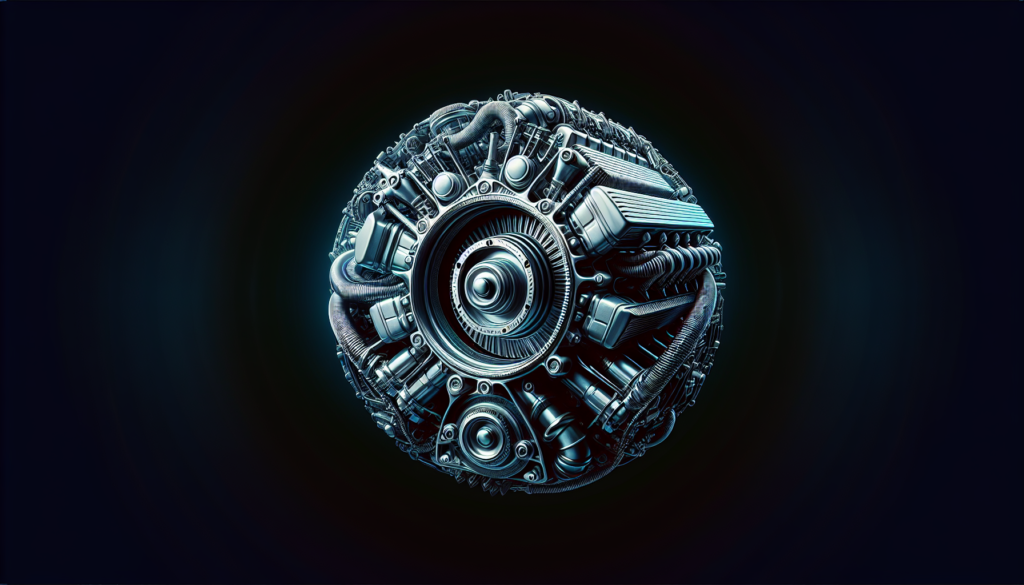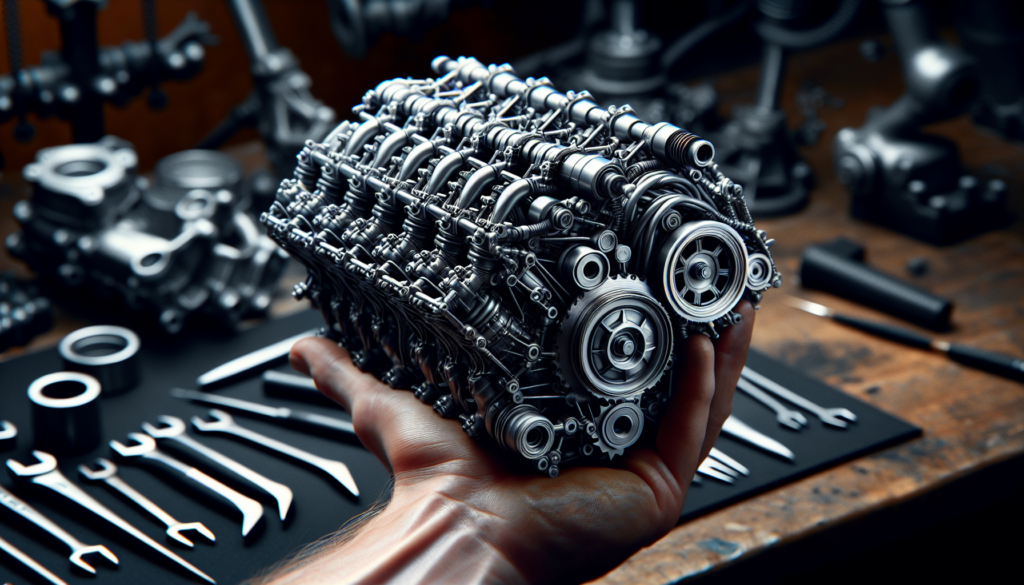Modifying your boat engine can be an exciting project that allows you to personalize your vessel and enhance its performance. However, it is important to approach this task with caution and avoid common mistakes that can lead to costly repairs and safety hazards. In this article, we will explore some of the most frequent errors that boat owners make when modifying their boat engines, and provide valuable tips on how to avoid them. So, if you’re planning to tweak your boat’s engine, keep reading to ensure a smooth and successful process.

1. Choosing the Wrong Engine Components
When it comes to modifying your boat engine, one of the biggest mistakes you can make is choosing the wrong engine components. This can have a significant impact on your boat’s performance and reliability. To avoid this, it is important to consider the manufacturer’s recommendations. They have spent countless hours testing and developing their engines, so they know what works best.
Ignoring the manufacturer’s recommendations can lead to subpar performance, increased wear and tear, and potential engine damage. It’s crucial to follow their guidelines for things like fuel type, oil viscosity, and recommended parts. By doing so, you can ensure that your engine is operating optimally and help extend its lifespan.
Another common mistake is overlooking the importance of compatibility. Not all engine components are compatible with each other. Mixing and matching parts from different manufacturers can cause issues and end up costing you more in the long run. Always double-check that the components you are considering are compatible with your engine model.
If you’re unsure about which components to choose or how they may interact with your existing engine, it’s wise to seek professional advice. Consulting with a marine mechanic or an experienced boat modifier can provide valuable insight and guidance. They can help you make informed decisions about which components will work best for your specific needs and ensure that your modifications are done correctly.
2. Neglecting Regular Maintenance
Regular maintenance is essential for the longevity and performance of your boat engine. Neglecting this aspect can lead to costly repairs and potentially leave you stranded out on the water. There are several common maintenance mistakes to avoid to keep your engine running smoothly.
Failing to change the engine oil regularly is one of the biggest mistakes you can make. Oil breaks down over time and becomes less effective at lubricating and protecting your engine’s components. Make sure to follow the manufacturer’s recommended oil change intervals and use the appropriate oil type for your engine.
Another overlooked maintenance task is fuel filter replacement. Over time, fuel filters become clogged with debris and contaminants, hindering fuel flow and potentially damaging your engine. It’s crucial to replace the fuel filter according to the manufacturer’s recommendation to ensure clean fuel is reaching your engine.
Neglecting cooling system maintenance can lead to overheating and engine damage. Regularly check your coolant levels and inspect the hoses and connections for any signs of wear or leaks. Flushing the cooling system periodically can help remove any built-up debris and prevent clogs.
3. Overloading the Engine
Overloading your boat engine is a common mistake that can have serious consequences. Adding too many accessories or exceeding the recommended weight capacity can put excessive strain on the engine, leading to decreased performance and potential damage.
When adding accessories to your boat, such as additional electronics or water sports equipment, it’s important to consider the cumulative weight. Each accessory adds weight to the boat, which in turn increases the load on the engine. Ensure that the total weight of all accessories is within the recommended limits to avoid overloading the engine.
Weight distribution is another factor to consider. Uneven distribution can cause the boat to be unbalanced and affect its handling and performance. Properly distribute the weight throughout the boat to maintain stability and prevent strain on the engine.
Always check your boat’s maximum weight capacity before loading it with passengers and gear. Exceeding this limit can put significant stress on the engine and other components, leading to premature wear and potential failure. Be mindful of the weight you are carrying and ensure it is within the specified limits.
4. Incorrect Propeller Selection
Choosing the wrong propeller for your boat can have a significant impact on its performance and efficiency. It’s crucial to make an informed decision based on several factors to avoid this common mistake.
The pitch of the propeller is an important consideration. Pitch refers to the distance the propeller moves forward with each revolution. Choosing a propeller with the wrong pitch can result in poor acceleration, reduced top speed, and increased fuel consumption. Consult with experts or refer to the manufacturer’s guidelines to select the appropriate propeller pitch for your boat and engine combination.
The material and design of the propeller also play a role in its performance. Different materials like aluminum and stainless steel offer varying levels of durability and resistance to corrosion. Consider the conditions in which you’ll be operating your boat and choose a propeller that is suitable for those conditions.
The load and usage of your boat should also be taken into account when selecting a propeller. If you frequently carry heavy loads or engage in water sports activities, a propeller specifically designed for these purposes may be more suitable. Matching the propeller to your specific needs will ensure optimal performance and efficiency.

5. Poor Installation Practices
Improper installation of engine components can lead to a host of problems. It’s important to follow proper installation practices to ensure the longevity and reliability of your boat engine.
Inadequate bolt tightening is a common mistake that can result in leaks, vibrations, and even component failure. Always use the recommended torque specifications provided by the manufacturer when installing bolts. Overtightening or undertightening can cause issues, so use a torque wrench to achieve the desired tightness accurately.
Improper electrical connections can lead to electrical shorts, corrosion, and even fires. Ensure that all connections are secure, free of corrosion, and properly insulated. It’s a good idea to use marine-grade connectors and follow wiring diagrams provided by the manufacturer.
Faulty fuel line installation can result in fuel leaks, engine damage, and even fire hazards. Pay close attention to fuel line routing, ensuring that it is properly secured and away from sources of heat or moving parts. Use quality fuel line fittings and clamps to ensure a secure and leak-free connection.
6. Ignoring Safety Precautions
Safety should always be a top priority when modifying your boat engine. Ignoring safety precautions can lead to accidents, injuries, and even fatalities. Here are some important safety measures to consider.
Using proper protective gear is essential to ensure your safety while operating the boat. Life jackets, helmets, and appropriate footwear should be worn at all times. Additionally, consider using ear protection to mitigate noise exposure and reduce the risk of hearing damage.
Neglecting fire safety measures can have catastrophic consequences. Install a fire extinguisher on your boat and familiarize yourself with its use. Regularly inspect the engine compartment for any signs of fuel leaks or electrical issues that could potentially start a fire.
Carbon monoxide is a colorless and odorless gas that can be deadly if inhaled in high concentrations. Always ensure proper ventilation on your boat to minimize the risk of carbon monoxide buildup. Avoid lingering near the exhaust area of the boat and familiarize yourself with the symptoms of carbon monoxide poisoning.

7. Rushing the Modification Process
Modifying your boat engine requires careful planning and execution. Rushing the process can lead to subpar results and potential problems down the line. Here are some mistakes to avoid when modifying your boat engine.
Lack of proper planning can lead to costly mistakes and rework. Take the time to research and understand the modifications you intend to make. Consider factors such as compatibility, feasibility, and the desired outcomes. Planning ahead can save you time, money, and frustration.
Insufficient testing and tuning can result in poor performance and reliability. After making modifications, it’s important to thoroughly test and fine-tune your boat engine. This may involve adjusting fuel and ignition settings, optimizing airflow, and ensuring proper component operation. Patience and diligence in this phase can help you achieve the desired performance and reliability.
Skipping the break-in period can have detrimental effects on your engine’s longevity. New or freshly modified engines require a break-in period to allow the components to properly settle and operate smoothly. Follow the manufacturer’s recommendations regarding break-in procedures and durations to ensure optimal performance and longevity.
8. Failing to Consider Long-Term Costs
Modifying your boat engine can come with additional costs beyond the initial investment. Failing to consider these costs can lead to financial strain and disappointment. Here are some long-term cost considerations to keep in mind.
Not budgeting for regular maintenance and repairs can result in unexpected expenses. Modifying your boat engine may require additional maintenance and servicing, as well as repairs down the line. Set aside a budget for these costs to ensure that you can properly maintain and address any issues that may arise.
Ignoring fuel efficiency considerations can lead to higher operating costs. Some modifications may impact your boat’s fuel efficiency, resulting in increased fuel consumption. Consider the potential impact on your overall expenses and factor this into your decision-making process.
Overestimating performance gains can also lead to disappointment. While modifications can enhance your boat’s performance, it’s important to set realistic expectations. Consult with experts or refer to reliable sources to gain a better understanding of the potential gains and ensure they align with your goals.

9. Disregarding Environmental Regulations
When modifying your boat engine, it’s essential to comply with environmental regulations. Neglecting these regulations can result in fines, legal issues, and harm to the environment. Here are some important environmental considerations to keep in mind.
Violating emissions standards can have serious consequences. The emissions from your boat engine can contribute to air pollution and harm the environment. Ensure that any modifications you make do not exceed the allowed emission levels and comply with the applicable standards.
Neglecting noise regulations can cause disturbance to wildlife and fellow boaters. Excessive noise levels can disrupt marine ecosystems and lead to penalties. Be mindful of the noise levels produced by your modified engine and take steps to minimize noise pollution.
Proper disposal of hazardous materials is crucial to protect the environment. When implementing modifications or performing maintenance tasks, ensure that any hazardous materials, such as used oil or chemicals, are disposed of properly. Local regulations and guidelines should be followed to prevent pollution and harm.
10. Lack of Proper Documentation
Keeping proper documentation is essential when modifying your boat engine. Failing to do so can lead to complications, warranty issues, and legal implications. Here are some important documentation practices to follow.
Not keeping records of modifications can make it difficult to troubleshoot issues or make future adjustments. Documenting the modifications you make, along with any relevant information such as part numbers, can help you track the changes and provide useful references in the future.
Neglecting to update your insurance information can result in coverage issues. Inform your insurance provider about any modifications you make to ensure that your policy accurately reflects the changes. Failure to do so may void your coverage or result in disputes during the claims process.
Overlooking warranty and legal implications can have serious consequences. Some modifications may void your engine’s warranty, while others may be subject to certain legal restrictions. Familiarize yourself with the warranty terms and conditions and ensure compliance with any applicable regulations to avoid issues.
In conclusion, modifying your boat engine can be an exciting and rewarding endeavor. However, it’s important to avoid common mistakes to ensure that your modifications are successful, safe, and compliant. By following the manufacturer’s recommendations, prioritizing regular maintenance, considering safety precautions, and keeping proper documentation, you can enjoy the enhanced performance and satisfaction of a well-modified boat engine.


